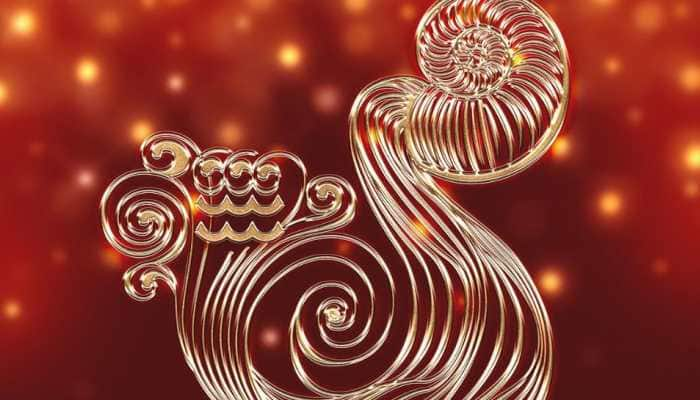Fusion has existed in India for a thousand years: Tabla maestro Zakir Hussain
Zakir Hussain doesn't like being called the "flagbearer" of fusion music, which he says has "existed in India for a thousand years".
Trending Photos
) Pic courtesy: @ZakirHtabla
Pic courtesy: @ZakirHtabla New Delhi: Since the 1970s, he has collaborated with musicians as diverse as John McLaughlin, Mickey Hart and Bill Laswell on a plethora of genre-defying fusion projects. Yet, tabla maestro Zakir Hussain doesn't like being called as the "flagbearer" of fusion music, which he says has "existed in India for a thousand years".
"The north Indian classical music that anybody performs, be it Ravi Shankar, Vilayat Khan or Bhimsen Joshi, is actually a fusion. The sufi poet-saint Amir Khusro was so taken by the music that was performed in the temples, which was called haveli sangeet or prabandh gayaki. It was close to dhrupad style.
"He was taken in by the soulfulness of the music and the devotion in the music towards the gods and goddesses," Hussain told IANS in a telephonic interview from Mumbai.
According to Hussain, the devotional music reminded Khusro of the kaul and kalbana, "which were the sufi singing forms of meditation, now known as Qawwali".
"He took the forms from temples and the kaul and kalbana and meshed them together and came up with the form of music now known as khayal, which all north Indian classical musicians perform. So, the fusion began then," added the Padma Shri awardee, who will perform a solo concert in Hyderabad next month to mark the 50-year celebration of Taj Mahal Tea.
Hussain credits late sitar maestro Pandit Ravi Shankar for taking Indian classical music to the stage.
"Someone like Ravi Shankar took it (Indian classical music) abroad and created what we now know was the stagecraft of Indian classical music, which is how to perform Indian classical music on stage because it was restricted to the palaces," said the internationally celebrated musician, who started touring when he was all of 12.
The musician released a live album called "Distant Kin" earlier in September, which features a collaboration between Indian classical and Celtic music.
Hussain said that the music which the Scottish musicians played reminded him of the tunes he had heard as a child at a dargah in Mumbai's Mahim neighbourhood, where a marching band played instruments like "bagpipes, Peshawari shehnai, horns from the western world, western snare and bowl in a frame drum".
"When I arrived in Scotland, I asked the musicians to play the Celtic music. The songs that they started to play were what I had heard as a nine- or 10-year-old. It turns out that 150 years ago, in the British army on the frontier land, there were musicians from both countries inducted into the band or the marching band of the British army.
"Where shehnai players, dhol players, dhakis... they would play music or the march past for the army and once they settled down, they had jam sessions. They taught each other Scottish, Irish and Brittany (music)... It included Pakistanis, Maharashtrians, Punjabis. It was amazing to see the 150-year-old music in that room," Hussain revealed.
The 64-year-old also credits digital media for helping Indian classical music reach a wider audience.
"Indian classical music is not a huge seller when it comes to CDs or DVDs. You sell 20,000 to 30,000 copies, not millions... When it (music) is on digital media, it is not cutting down on sales. Something like YouTube audios and videos, which have 200,000-300,000 hits are great... iTunes, Facebook or wherever it is, it just brings visibility to the music."
Hussain, meanwhile, is looking forward to his live show.
"What's interesting to me is that when I did the first advertisement for Taj Tea, that was in Agra overlooking the Taj. There was just the tabla and me and after 40 years, when I go to Hyderabad, it is going to be just that tabla and me. In other words, it is the same visual and same memory from way back; and that for me is emotional," he said.







)
)
)
)
)
)
)
)
)
)
